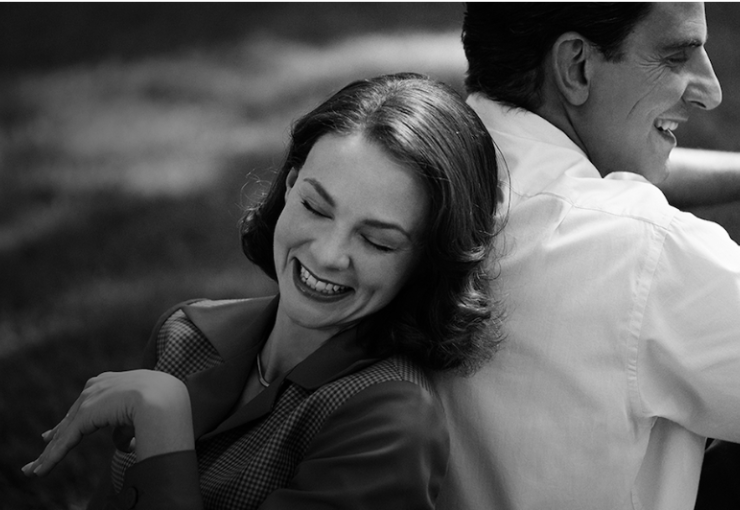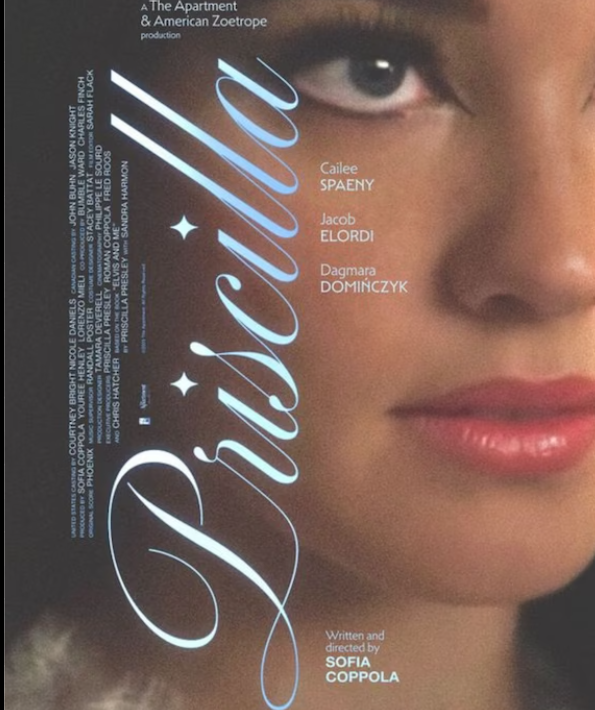Opinion: 93rd Academy Awards – The Best Picture Nominees From Worst to Best

The 93rd Academy Awards are approaching. It feels futile to mention that this year’s ceremony, just like everything else in the world, has been affected by the global pandemic. The ceremony is taking place two months later than a typical Oscars ceremony. Many films that could’ve contended for big nominations were pushed back to a 2021 release date. The ceremony is so late in the year that a film that had a 2021 release date is not only eligible and competing, but competing for the Best Picture award. This ceremony is interesting for all these reasons, but aside from all this supplemental information, this year’s ceremony stands out as having good competition. Big prizes such as Best Actor/Actress and Best Supporting Actor/Actresses are far more up in the air compared to previous years. This year is not as predictable in terms of who is guaranteed to win, which makes this year’s ceremony especially interesting.
From worst to best, here is my personal ranking of the eight films competing for Best Picture!
Number 8: Promising Young Woman
CW: Rape/Sexual Assault
Promising Young Woman is the directorial debut for actor Emerald Fennell, who also wrote the film. The film covers Cassie Thomas, a woman who takes revenge on predatory men after a traumatic experience. The film is nominated for Best Picture, Best Director, Best Actress, Best Original Screenplay, and Best Film Editing.
It is very difficult to articulate why I dislike this film, and that is for a variety of reasons. My grievances with this film go down to how its narrative is handled, as well as how it handles its themes. It is near impossible to be specific about these grievances with these two things without spoiling the film, so I will not attempt to. It is also difficult to criticize this film so intensely without feeling as though it looks like I am dismissing films that cover topics such as rape culture, sexual assault, and patriarchy. I want films to cover these topics. I am glad films with these themes are being made. That does not mean I think all films covering these themes are automatically good by virtue of their exploration of these themes. This film is irresponsible in its exploration of these themes, and it is difficult to look beyond this fact when talking about a film that is intended to confront its viewers with its themes.
Beyond its poor exploration of its themes, the film itself is fine. I would be lying if I said there weren’t commendable aspects of this movie. The bright, candy-like production design creates an interesting tone. The casting of the typical movie “nice guys” as predatory men play with audience expectations in surprising ways. Carey Mulligan delivers a great performance, seamlessly switching between drunken confusion to intense confrontation in a heartbeat. The score’s orchestral rendition of Britney Spears’s “Toxic” cannot go ignored. The film itself isn’t completely generic in presentation, which makes the experience more special.
This may be the film I have the most to say, which doesn’t surprise me, as it is easier to write about something you dislike than something you like. I wish this film was so much better, as it is a theme I want to be explored in more films. I just wish it was executed better.
Number 7: The Trial of the Chicago 7
The Trial of the Chicago 7 is Aaron Sorkin’s latest film and second directorial work. The film covers the 1969 trial against seven antiwar protestors charged with counts of conspiracy and crossing state lines with intent to start a riot at the 1968 Democratic National Convention. The film is nominated for Best Picture, Best Supporting Actor, Best Original Screenplay, Best Cinematography, Best Original Song, and Best Film Editing.
Though I don’t feel as though this is the worst film of the nominees, I feel as though this is the least deserving film of the nominees. All of the other nominees feel as though they explore something genuine, whereas Trial feels like it wants to capture something for its timeliness rather than its content. This film screams cultural revolution until the very last moments where it finds itself conceding to the system it sets up the entire film opposing. The emotions of the film feel incredibly artificial, which isn’t necessarily a bad thing, but when executed in the way this film is, the artificiality behind this film becomes hard to ignore. Sorkin shines as a clever screenwriter, packing his interesting story structures and punchy dialogue, but matches it with an incredibly sloppy direction that does not do the story justice. This film exists on a very weird plane of not being the best in a lot of areas. This isn’t the best film of 2020 about the effect the Vietnam War has had on oppressed members of American society, that would be Da 5 Bloods. This isn’t the best courtroom drama of 2020, that would be Mangrove. This isn’t even the best film nominated for Best Picture that features Fred Hampton as a character, that would be Judas and the Black Messiah. Overall, Trial stands as one of the least exciting picks in this year’s nominee list.
Number 6: Mank
Mank is David Fincher’s first film in 6 years. The film follows screenwriter Herman J. Mankiewicz as he develops the screenplay for Citizen Kane. Mank is this year’s most-nominated film, competing for Best Picture, Best Director, Best Actor, Best Supporting Actress, Best Original Score, Best Sound, Best Cinematography, Best Production Design, Best Costume Design, and Best Makeup and Hairstyling.
This film is a stylistic and narrative shift away from Fincher’s typical crime drama affair. The film is based on a screenplay Fincher’s father wrote in the ’90s. The film is a passion project of Fincher’s, and it is clear that a lot of care was taken in the production of this film. The technical aspects of the film are incredibly impressive, with much attention paid to feeling like a film from the era it is depicting, suiting the subject matter of the film even more. The performances from Gary Oldman and especially Amanda Seyfried are great. The film is well made from a technical standpoint, however, the film is not that will emotionally entice audiences beyond one viewing of the film. The structure of the film is more interesting than a typical biopic of this type of subject matter, but it does not create a more lasting impression for it, which is a shame considering how monumental its subject matter is to the art form of cinema. It is a worthwhile watch, but not one that is entirely necessary or impressionable.
Number 5: Nomadland
Nomadland is Chloe Zhao’s third feature film and the winner of the 2020 Venice Film Festival’s Golden Lion Prize. The film follows a woman who decides to navigate America as a nomad after the death of her husband, the closing of her town, and the economic recession. The film is nominated for Best Picture, Best Director, Best Actress, Best Adapted Screenplay, Best Cinematography, and Best Film Editing.
This film has been this year’s awards darling, racking countless awards from critics circles and other ceremonies. Though this film did not register with me the same way it did for a lot of people, I still believe this film is very well made and very worthwhile. Nomadland is an ambitious film. The film mixes elements of fictional drama and documentary filmmaking so seamlessly that the result feels grounded in reality more so than many other films that try to achieve the same goal. There is a real weight to this film, a depth to it that is added because of its blending of drama and documentary. Throughout the film, real nomads are featured, who tell their real stories about who they are and why they decided to live the life they do. These moments are the most interesting part of the film, far more than the meandering fictional story. To be honest, if this film was a documentary following the nomads of America rather than a film about a fictional nomad that interacts with real nomads, it would be far stronger. The fictional story meanders at many points, and it takes away from the atmosphere of the nomads. Overall, this film is flawed, but still worth a watch, and definitely deserving of the awards it may (and probably will) win.
Number 4: Judas and the Black Messiah
Judas and the Black Messiah is the second feature film by director Shaka King. The film follows the betrayal of Chairman of the Illinois Black Panther Party Fred Hampton by FBI informant William O’Neal. The film is nominated for Best Picture, 2 Best Supporting Actor awards (Daniel Kaluuya and Lakeith Stanfield), Best Original Screenplay, Best Cinematography, and Best Original Song. It is also the only film nominated in this year’s ceremony to come out in 2021.
Judas and the Black Messiah is a solid, entertaining, biopic. The performances across the board are stellar, with Kaluuya being the clearest highlight, giving one of the best performances of the nominees as the invigorated revolutionary Fred Hampton. The filmmaking on display is skilled, the story is consistently intriguing and revelatory, the technical aspects are well cared for. This film provides a new perspective of the Black Panthers in American cinema that we don’t get enough of in the mainstream and it does so in a way that doesn’t alienate. The film, like Hampton himself, invites the audience to see eye to eye, regardless of differences in race, to achieve a common goal of the greater good. It is somewhat disappointing that the film doesn’t go in-depth about the politics of the Panthers. It plays less like a political film and more like a drama with simpler storytelling elements, ala The Departed. However, this doesn’t take away from the film being a great film with excellent performances and an entertaining plot.
Number 3: Sound of Metal
Sound of Metal is the second feature film by director Darius Marder. The film follows metal drummer Ruben Stone as he begins to lose his hearing. The film is nominated for Best Picture, Best Actor, Best Supporting Actor, Best Original Screenplay, Best Film Editing, and Best Sound.
Though this film may follow the typical structure of a person experiencing immense transitions in life, the film differs from others of similar stories by its presentation and how it handles the subject. The film so cleverly presents the experience of being deaf to really make the audience understand the pain and difficulty of losing a crucial aspect of your life from his perspective. The sound design in this film is excellent and needs to be experienced with the best audio system available. The performances are very raw and realistic, with Riz Ahmed and Paul Raci giving two powerhouse performances as a man transitioning into a life that cannot include his previous sources of joy, and a man who found peace in his deafness respectively. Sound of Metal is a film that will leave a lasting impression, especially with its haunting ending.
Number 2: The Father
The Father is an adaptation of Florian Zeller’s play of the same name. Zeller handles this adaptation. The Father follows an elderly man who begins to lose his memory. The film is nominated for Best Picture, Best Actor, Best Supporting Actress, Best Adapted Screenplay, Best Film Editing, and Best Production Design
If one were to simply consume the advertising material for this film, one might reasonably guess that this film is another Oscar-bait drama about an old person. However, this film is far more than that. This film, much like Sound of Metal, depicts a loss of the main character’s senses from the perspective of that character instead of from the outside looking in. The Father puts the audience in the shoes of someone with dementia and shows how distressing the disease can be. Anthony Hopkins gives what is one of the greatest performances of the year, with intense dramatic range throughout the film. The editing behind this film is near genius in its ability to disorient and confuse the viewer, further driving home the experience of dementia, so much so that it genuinely becomes difficult to see this narrative working as a theatrical production, which is where it originally comes from. This film is heartbreaking. It aims to be a downer. And it succeeds with flying colors.
Number 1: MInari
Minari is the fifth film by director Lee Isaac Chung. Heavily based on Chung’s childhood, Minari follows a family of South Korean immigrants as they settle onto an Arkansas farm during the 1980s. The film is nominated for Best Picture, Best Director, Best Actor, Best Supporting Actress, Best Original Screenplay, and Best Score.
This is an incredibly personal pick for me. Again, this entire list is a personal ranking. This film is my pick for not only the best film out of these eight but my favorite film of 2020. This film is one of intense empathy. There has not been a film that has made me cry more. Minari shatters your heart and proceeds to put it back together stronger than ever. The film is incredibly emotional, each scene carrying indescribable emotional weight. The story is set up in a way where the audience wants nothing more than for the characters to be ok. The audience wants nothing more than the story to work out for the characters, in spite of the challenging journey that lies ahead of them. Minari also puts to screens the experience of the Asian American family, specifically that of the Asian immigrant family. This film is so successful in nailing its representation of being Asian in America, that it is not unreasonable to say that it is the defining Asian American film. Minari is a beautiful, powerful film that must be on everyone’s radar, especially those who are Asian American.
My Final Ranking:
- Minari
- The Father
- Sound of Metal
- Judas and the Black Messiah
- Nomadland
- Mank
- Trial of the Chicago 7
- Promising Young Woman
Jason is a former staff writer for The Talon. He writes for the Entertainment section. He is an aspiring filmmaker and writer.
Nicole was the former Editor-in-Chief of The Talon. In her free time, she takes care of her two pet turtles. If you have any book recommendations, let her know.







